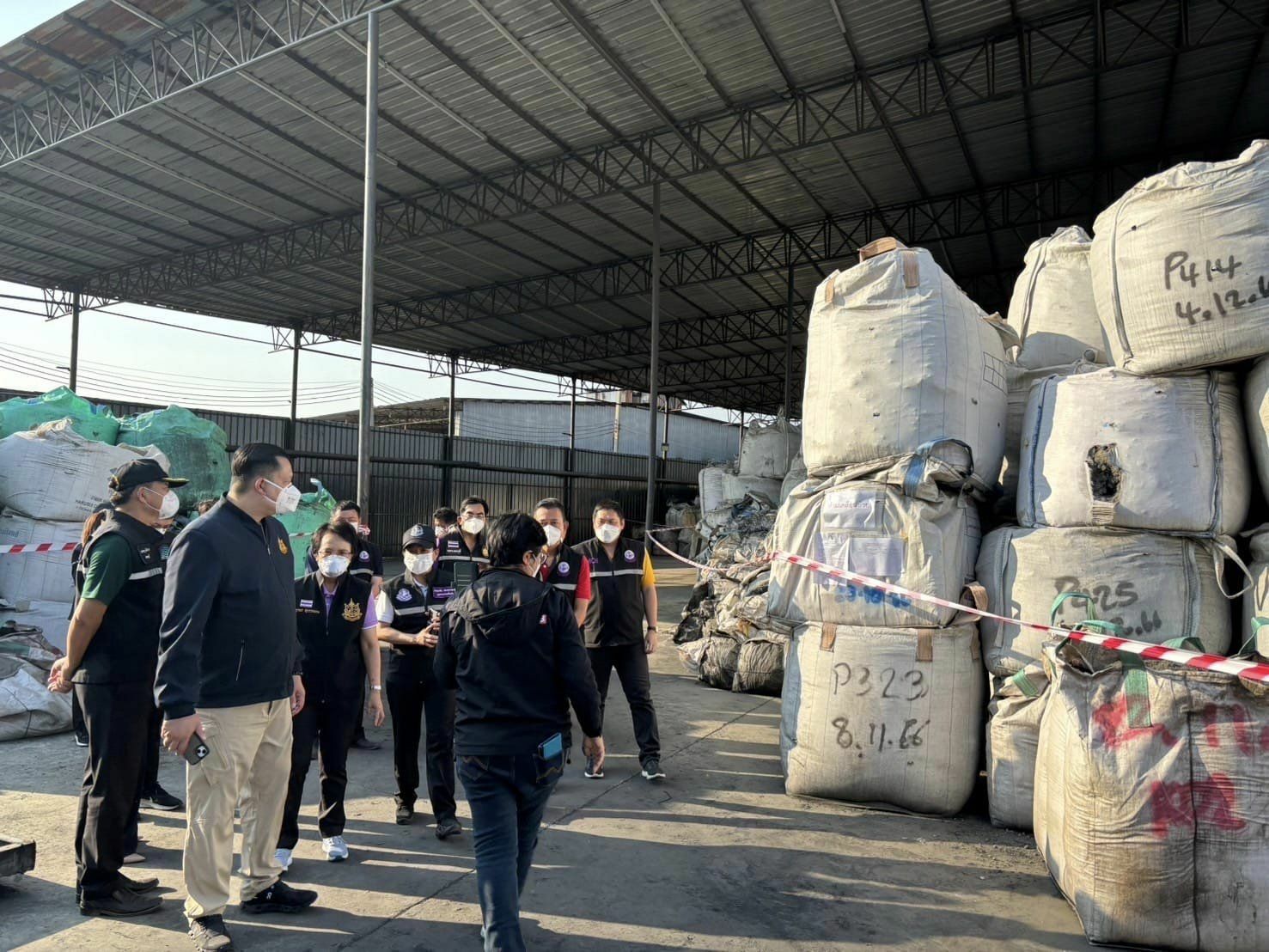Chinese investors linked to cadmium tailings trade in Thailand

The Thai authorities have confirmed that Chinese investors were accountable for the trading of 13,832 tonnes of cadmium tailings in Thailand. Further cadmium waste has been uncovered in the provinces of Samut Sakhon and Chon Buri, with 5,358 tonnes of the chemical waste still unaccounted for.
The Industrial Commission of the Secretariat of The House of Representatives received a tip-off about the illegal storage of cadmium tailings in Samut Sakhon province. This tip-off led to the discovery of 3,040 tonnes of cadmium waste at the warehouse of J&B Metal Co on April 7.
Following the Environmental Impact Assessment (EIA) agreement, this waste must be buried in a cement pond indefinitely due to its potential harm to both human health and natural resources.
Further investigation into the source of the chemical substances revealed that it originated from a smelting company, Bound & Beyond Plc, in Tak province. The company allegedly excavated 13,832 tonnes of cadmium waste from the cement pond and distributed it to various warehouses.
The Thai authorities conducted searches to locate the remaining 10,792 tonnes of cadmium waste. These searches led to the discovery of an additional 4,400 tonnes in a factory in the Ban Bueng district of Chon Buri province on April 6 and 1,034 tonnes in another warehouse belonging to Cin Hong Cheng Inter Tech in Samut Sakhon on April 7.
The search is ongoing to find the remaining cadmium waste of 5,358 tonnes. Officials suspect that all of the cadmium tailings may have been intended for transfer to China but they believe the substances are still in Thailand and have not yet been processed.
Chinese investors involved
The Thai authorities provided clarification regarding the trade of cadmium tailings to PPTV HD, explaining that the waste originated from a cement pond owned by Bound & Beyond Plc in Tak and was subsequently sold to J&B Metal Co in Samut Prakarn.
A Thai intermediary named Kit, representing J&B Metal Co, sought assistance from Zhang, the Chinese proprietor of Cin Hong Cheng Inter-Tech, to identify potential buyers for the materials.
Zhang proposed the cadmium tailings to Liu Lu, a Chinese factory owner in Chon Buri, at a rate of 8.25 baht per kilogramme. Subsequently, J&B Metal Co initiated the transfer of the cadmium waste to Liu Lu’s company.
During the raid, Zhang was present at Cin Hong Cheng Inter Tech and denied any involvement in the sale of cadmium tailings. He claimed to have only temporarily stored the waste for Kit and did not profit from its sale.
Officials are currently searching for the Thai agent named Kit and other relevant suspects, both local and foreign.
Thai environmental academic Sonthi Kotchawat told PPTV HD that the price of cadmium tailings in the international market is approximately US$4.1 (about 150 baht) per kilogramme. Therefore, one tonne of cadmium waste is valued at about 150,000 baht. These cadmium tailings could cause a huge profit for Chinese investors.
This substance contributes to the manufacturing of rechargeable batteries known as nickel-cadmium batteries (NiCd batteries). Prachachart also noted that cadmium tailings are utilised in the production of paints and metal plating.
Latest Thailand News
Follow The Thaiger on Google News:


























